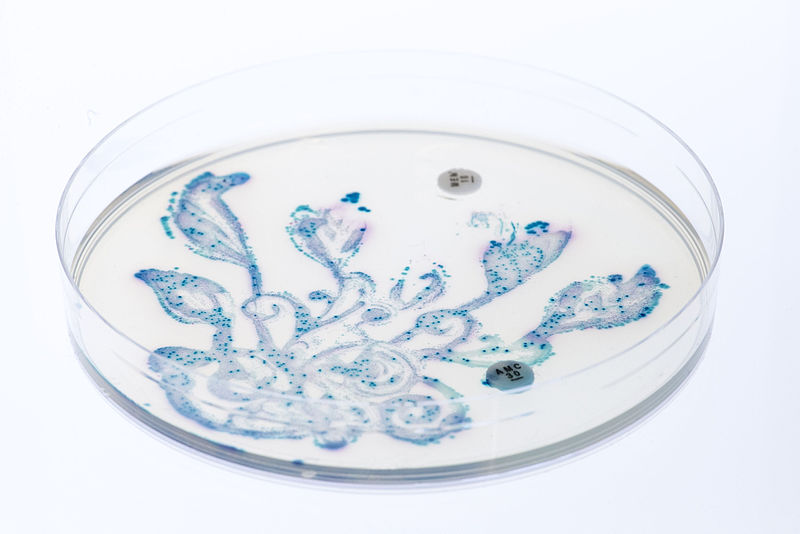Targeted Treatment of Endometriosis: More Insight into Progestin-based Therapy
Endometriosis is a systemic disorder characterized by the growth of the lining of the uterus outside the uterus, causing severe, debilitating pain and infertility. Endometriosis is incredibly common— more than 11% of American women are affected, yet there are few effective treatment options available. This is partly because of a lack of funding; only seven million dollars were dedicated to endometriosis research by the National Institute of Health in 2018, a measly amount compared to other diseases that impact a similar number of people. There is an immense need to fill this knowledge gap by dedicating more time and resources on studies to improve the flawed treatments that are currently available.
One such treatment option to manage pain symptoms is progestin-based therapy. Progestin is a form of the hormone progesterone. Progestin can be found in most oral contraceptives, or birth control pills, due to its role in inhibiting ovulation and therefore conception. Progestin also limits the growth of the hormone estrogen in the second half of the menstrual cycle. Because the growth of endometriotic lesions is promoted by estrogen, progesterone is utilized in treatment for its capacity to inhibit the estrogen-based growths. However, the effectiveness of progestin-based therapy is variable and prone to failure for certain patients.
This is likely because endometriotic growths do not act like normal uterine tissue and lack key progesterone receptors (PR), which allow progesterone to act on the cells of uterine tissue. Researchers at Yale University have evaluated the PR status of endometriotic lesions in order to better understand how the quantity of functioning PR can predict the effectiveness of progestin-therapy. By learning how to predict the varied impacts of progestin-based therapy, future endometriosis treatments can become more individualized, and thus more effective for more women.
One such treatment option to manage pain symptoms is progestin-based therapy. Progestin is a form of the hormone progesterone. Progestin can be found in most oral contraceptives, or birth control pills, due to its role in inhibiting ovulation and therefore conception. Progestin also limits the growth of the hormone estrogen in the second half of the menstrual cycle. Because the growth of endometriotic lesions is promoted by estrogen, progesterone is utilized in treatment for its capacity to inhibit the estrogen-based growths. However, the effectiveness of progestin-based therapy is variable and prone to failure for certain patients.
This is likely because endometriotic growths do not act like normal uterine tissue and lack key progesterone receptors (PR), which allow progesterone to act on the cells of uterine tissue. Researchers at Yale University have evaluated the PR status of endometriotic lesions in order to better understand how the quantity of functioning PR can predict the effectiveness of progestin-therapy. By learning how to predict the varied impacts of progestin-based therapy, future endometriosis treatments can become more individualized, and thus more effective for more women.
Image Source: GabiSanda
To test PR expression, immunohistochemical analysis, or a process by which antibodies are used to test for antigen markers (PR) on sample tissue, was conducted. Through this, PR status could be quantified with a specific score known as an H-score. In the study, PR status was reliably predictable of progestin effectiveness; subjects with lower overall PR responded poorly or not at all to progestin-based therapy as treatment. The PR levels differed from subject to subject and among different samples from the same subject, demonstrating that individual lesions vary in PR status. Two out of the 52 subjects had samples of both high (100% response rate) and low (6% response rate) PR status. This demonstrates the need to collect samples from multiple lesions in order to accurately assess how a patient with endometriosis will respond to progestin therapy. Additionally, this study built upon progress made to develop a test to determine progestin effectiveness, as an H-score greater than or equal to 80 strongly correlated with positive response to the treatment.
However, it must be taken into consideration that endometriosis is a systemic disease whose etiology, or root cause, is still unknown. In addition to uncontrolled growth of the uterine lining, endometriosis impacts the brain and metabolic and inflammatory processes, altering pain response and increasing one’s likelihood of experiencing anxiety or depression. This study will facilitate better targeted treatment of the painful uterine growths, the aspect of endometriosis that most degrades quality of life. However, more research is required to understand the etiology of the disorder in order to develop a cure. More studies like the one conducted at Yale University will provide better treatment options for endometriosis patients and establish a more fundamental understanding of the disease.
However, it must be taken into consideration that endometriosis is a systemic disease whose etiology, or root cause, is still unknown. In addition to uncontrolled growth of the uterine lining, endometriosis impacts the brain and metabolic and inflammatory processes, altering pain response and increasing one’s likelihood of experiencing anxiety or depression. This study will facilitate better targeted treatment of the painful uterine growths, the aspect of endometriosis that most degrades quality of life. However, more research is required to understand the etiology of the disorder in order to develop a cure. More studies like the one conducted at Yale University will provide better treatment options for endometriosis patients and establish a more fundamental understanding of the disease.
Featured Image Source: rawpixel.com
RELATED ARTICLES
|
Vertical Divider
|
Vertical Divider
|
Vertical Divider
|






